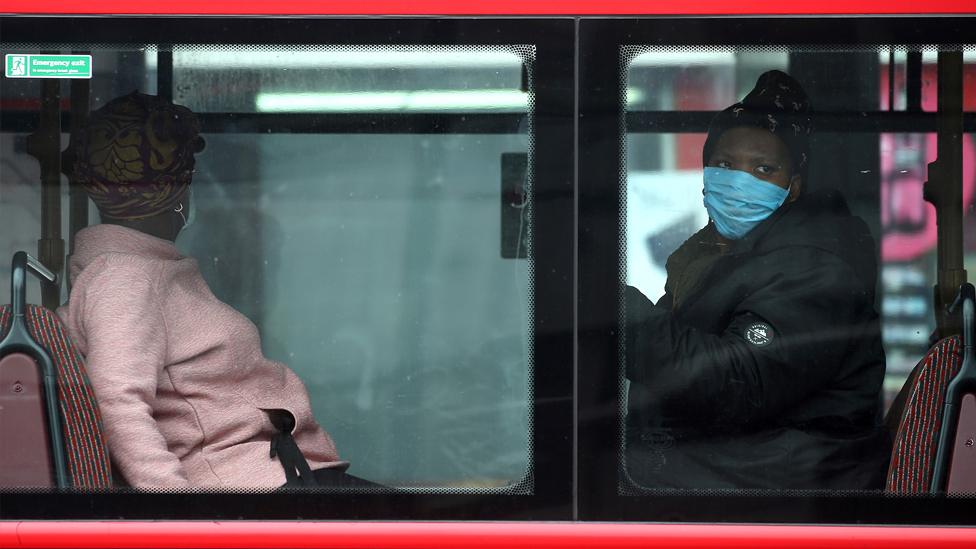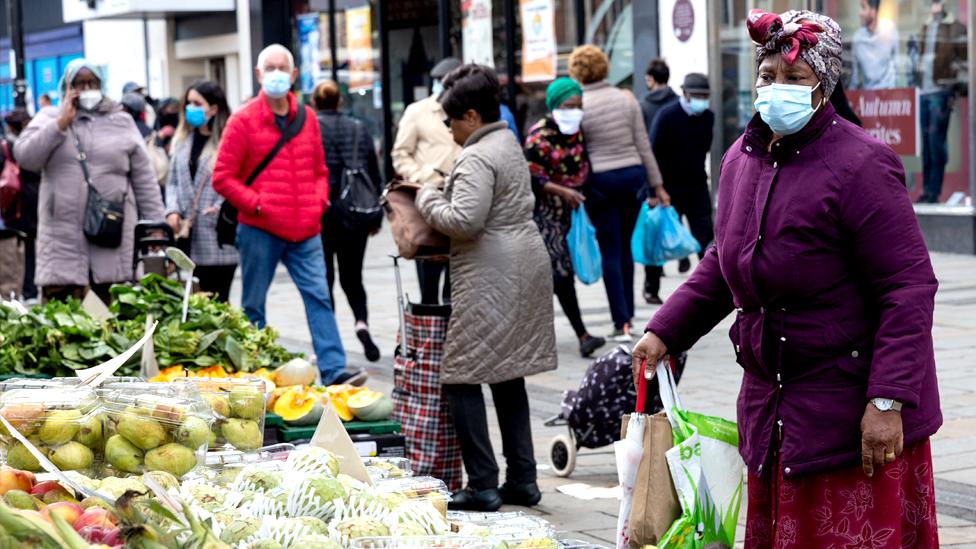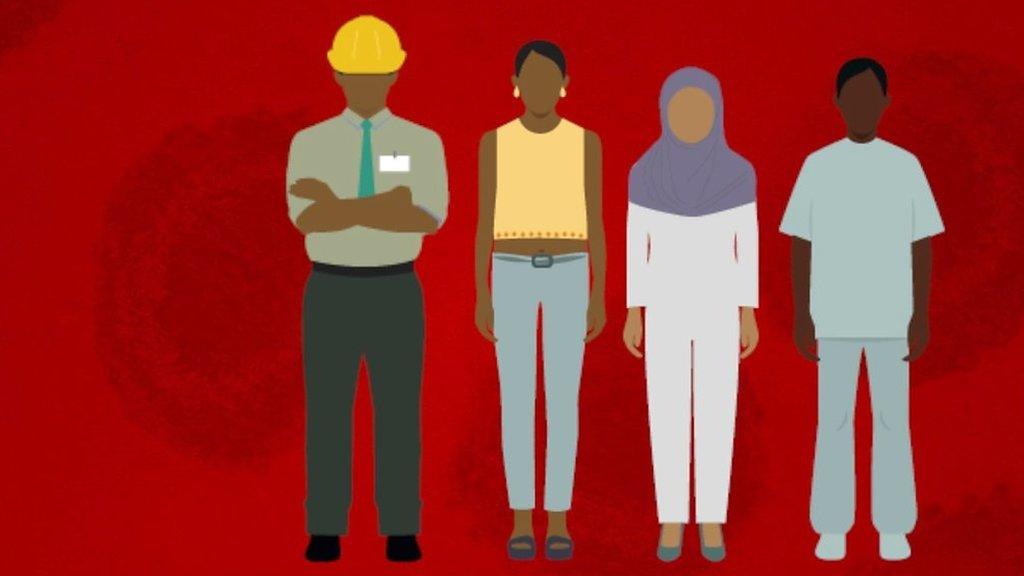Coronavirus: Higher ethnic death risk 'not linked to health'
- Published

Ethnic minorities' higher risk of dying from Covid-19 is linked to where they live and the jobs they do, rather than their health, figures for England and Wales suggest.
The Office for National Statistics, external found all ethnic minority groups, other than Chinese, are more likely to die from it than white people.
Black African men and black Caribbean women had the highest risk.
The figures are based on deaths up to the end of July.
The ONS looked at the total number of people in each community in England and Wales whose death involved Covid-19.
It is already known that ethnic minorities face a greater risk of dying from the disease caused by Sars-CoV-2.
By factoring in data on underlying health conditions, the ONS research has been able to get closer to finding out why.
It found that although some existing health problems put people at greater risk of being seriously ill and dying from Covid-19, that could not explain differences in death rates among ethnic minorities.
Instead, the differences were more likely to be caused by demographic and socio-economic factors, such as where people live and the kind of jobs they do.
What were the findings?
Black African, black Caribbean, Bangladeshi and Pakistani women were nearly twice as likely as white women to have died with Covid-19.
Black African, black Caribbean and Bangladeshi men were more than twice as likely (and Pakistani men nearly twice as likely) as white men to have died with Covid-19.
Men and women from Indian mixed ethnicity communities were roughly 50-75% more likely to die with Covid-19 than white men and women.

In care homes, men of Asian background and women of black and Asian background had a higher rate of death involving Covid-19 compared to white people, after taking account of geography and health measures.
Ben Humberstone, deputy director of health analysis and life events at the ONS, said more detailed ethnic group categories had been used in this research than previously.
He said the report confirmed that rates of death involving Covid-19 "remain greater for most ethnic minority groups, and most notably so for people of black African, black Caribbean, Bangladeshi and Pakistani ethnic background."
"Our statistical modelling shows that a large proportion of the difference in the risk of Covid-19 mortality between ethnic groups can be explained by demographic, geographical and socio-economic factors, such as where you live or the occupation you're in," he added.
Generations in households
Evidence in papers seen by the government's scientific advisers, external shows that young and old living together in ethnic minority households may also be a factor in the spread of the virus.
Just 8% of white over-70s live in households with someone younger than 50 - whereas two-thirds live with younger generations in Bangladeshi households, 60% in Pakistani households and 27-36% in black households.
There is also still much to discover about how different people are affected at different stages of the disease.
A recent study, based on 1,800 hospital patients in a London hospital, found that black people had a higher risk of being admitted to hospital with Covid-19, while South Asian people were more likely to die from it.
- Published9 October 2020

- Published17 June 2020
